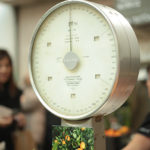Around minute forty-two of episode #111 of the Magnet Theater Podcast (embedded below), guest Kristina Grosspietsch and host Louis Kornfeld start talking about anxiety. One line in particular stuck out for me when Louis says, “It seems to me that a lot of people who cope with anxiety are drawn to improv.” He then points out the irony. “I can think of few things that lead to anxiety quite as well as improv does.”
[soundcloud url=”https://api.soundcloud.com/tracks/304334162″ params=”auto_play=false&hide_related=false&show_comments=true&show_user=true&show_reposts=false&visual=true” width=”100%” height=”350″ iframe=”true” /]
First, let me just say that listening to other anxiety-ridden people talk about their anxiety is actually kind of exciting for me. I don’t mean that in a cruel way. It’s more like, “Holy shit! You feel this too? You’re constantly worrying what everyone is thinking about you? Awesome!” Okay, it’s not “awesome” but you made me feel temporarily less weird and that is awesome.
Anxiety is definitely a force in my life. So, it is kind of ironic that I seek out not only comedic performance but comedic performance in which nothing is prepared.
I’ll paraphrase the classic Jerry Seinfeld joke. For most people, the number one fear is public speaking. The second one is death. That means that, at a funeral, most people would rather be in the coffin than giving the eulogy.
As they mention in the podcast, there must be an element of confronting anxiety as a means to control it. In my experience, anxious people, myself included, engage in anxiety inducing behavior. You would think we would do whatever we had to do to reduce it. But if you tally the hours of my life spent smoking cigarettes, drinking coffee, or getting on stage versus the hours spent doing yoga and meditating, anxiety beats serenity handily.
In the book Flow – the oft cited book about achieving an optimal “flow state” with an activity – Mihaly Csikszentmihaly says that flow happens in a, “goal-directed setting with rules that offer challenges and require skills.” (Emphasis mine.) So, you need to be doing something in which you can succeed or fail. It also has to be a challenge within a framework. Too much challenge and you might give up, too little challenge and you get bored.
He talks about people achieving flow in a wide variety of ways across a broad spectrum of careers and activities – surgeons, chess players, literally any activity you can think of. It was his mention of rock climbers, though, that fascinated me the most. Rock climbers do something incredibly dangerous, anxiety provoking to say the least. The flow state, however, comes not from the fact that they are putting themselves in danger; it comes from all measures they take to minimize the danger.
I often hear people who are far more confident than I am in actual life say, “I could never do that.” Well, I’m not doing it to make myself anxious. I’m doing it because I know that it’s possible to experience the complete loss of anxiety on stage. By plunging myself into it, I have the chance to release it.
As Kristina points out in the podcast, you also have to have some ambition. I’m sure there are many more anxious people at home not doing improv. On some level, you have to want to confront anxiety because when you just appease it, it can feel like a defeat.
I think my relationship to anxiety and comedy goes a little deeper than just improv, though. Why did I love comedy in the first place? And why did I find myself trying to be funny?
First of all, comedy soothes me. As a kid, if I were ever unhappy, I would turn on comedy and it made me feel better.
More importantly, though, a lot of social anxiety comes from wondering what another person thinks of you. Does this person like me? Do they hate me are they bored by me? Making someone laugh takes some of the guesswork away. If I can make someone laugh in a conversation, it feels like they’re okay with me, if only for that fleeting moment.
When I’m on stage, I’ll improvise or tell a story and what I get back is either silence or laughter. It’s almost binary. There’s also the buckshot aspect of an audience. If half of them laugh, it’s still a laugh. If I’m talking to one person and I say something unfunny or awkward and that person just glares back at me, that’s one hundred percent of that person not liking me. Throw in something verbal like, “Um, what?” and the sting is compounded.
If you have social anxiety, you can relate to that moment when you say something dumb. Whether it actually was dumb or not is actually irrelevant. It sounded dumb to you and you recognize it instantaneously. Much like an athlete pulling a hamstring can tell instantly that she’ll be on the sidelines for a month or two, the anxiety ridden person can tell himself, “I’m gonna be obsessing over that gem for a while.”
I’ve also never regretted doing improv. I’ve been upset at myself for a bad show. That happens. But when you’re with some people and you’re doing this weird thing we do, you don’t worry. For however long that silly thing lasts – that warm up, that scene, that group game – you know that the people around you are cool with it and that you’re supposed to be doing it. For all the years I’ve been doing improv no matter how I feel going into a show or rehearsal, after I come out I always think, “I’m glad I did that.”




